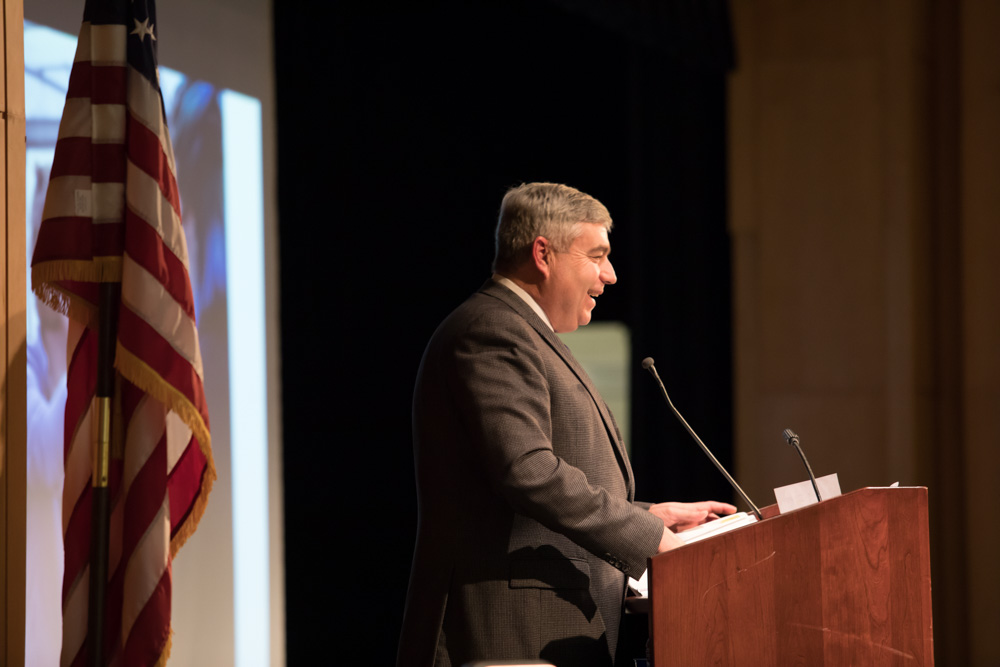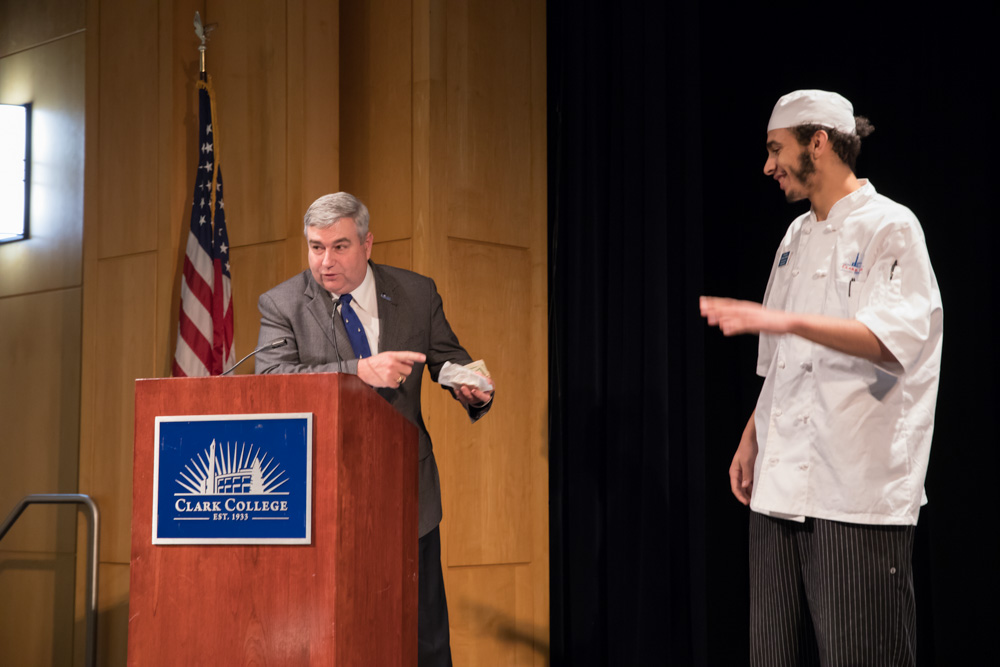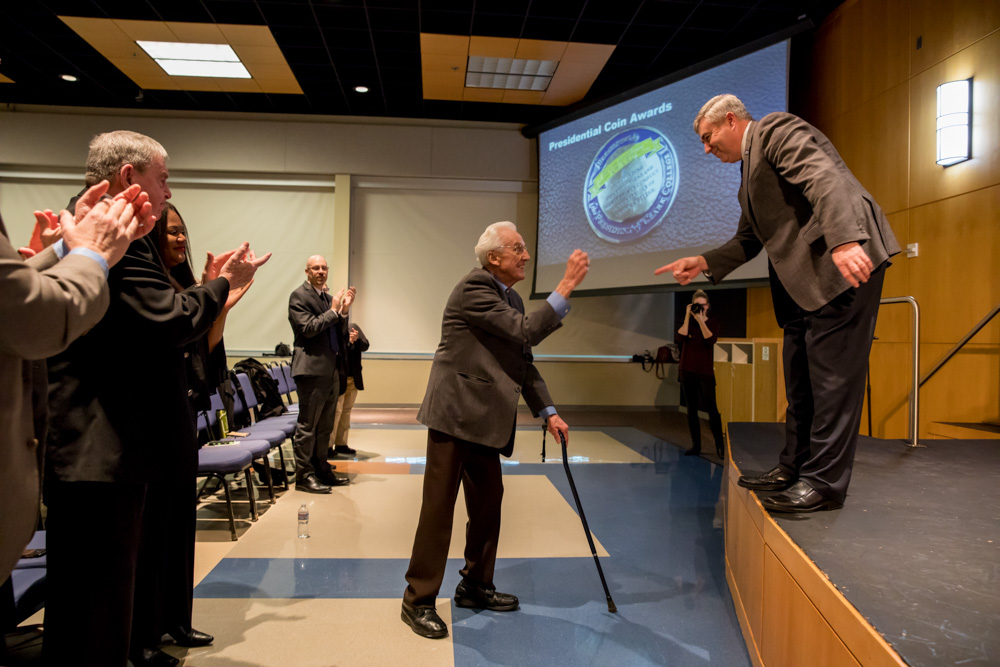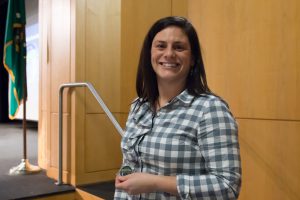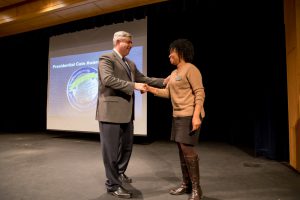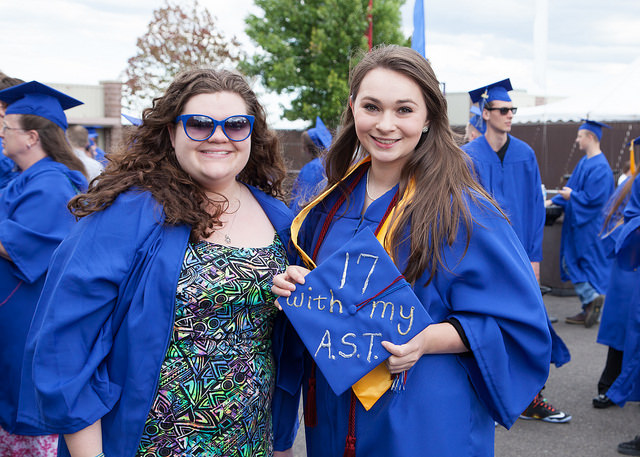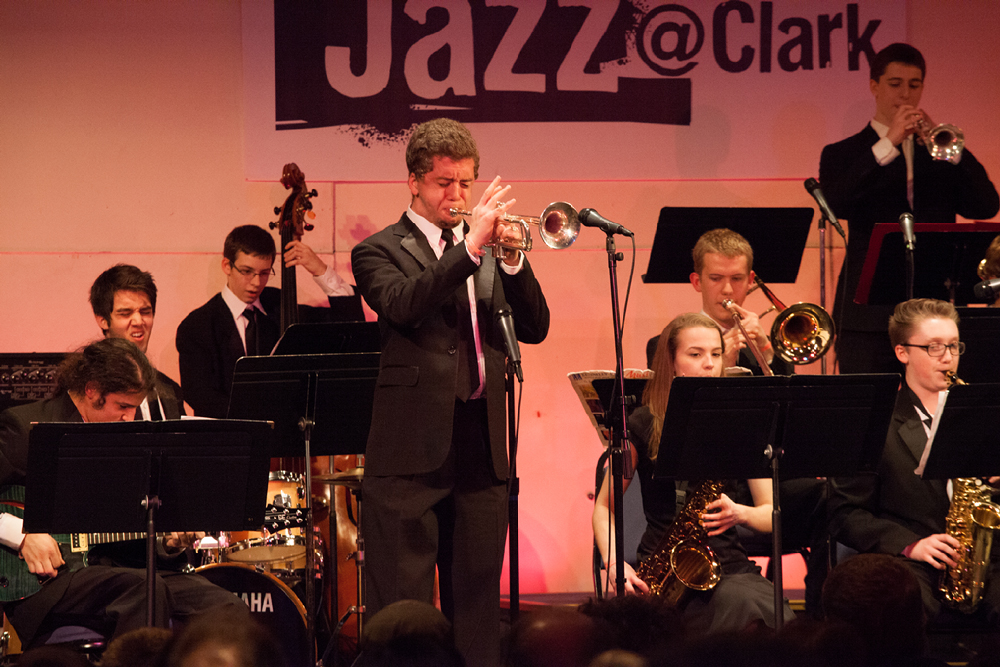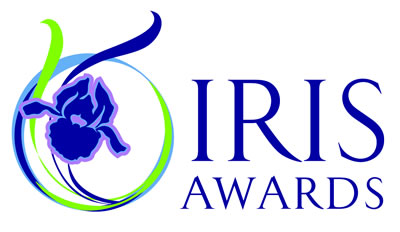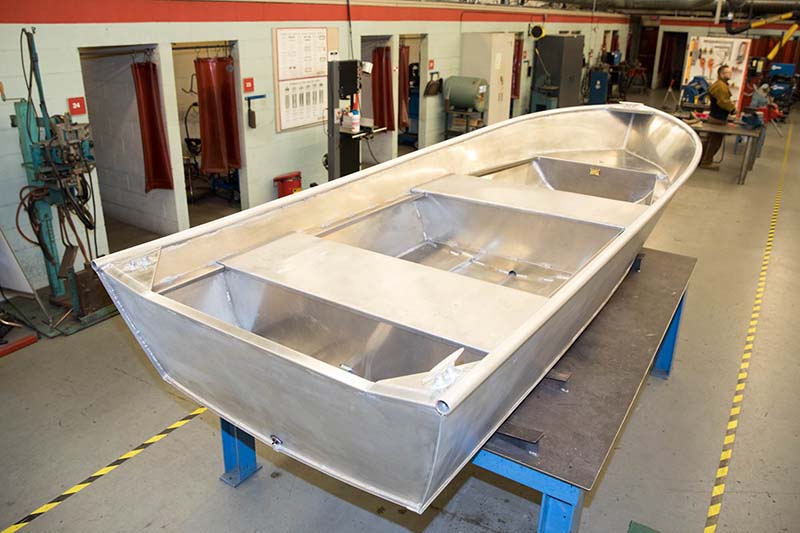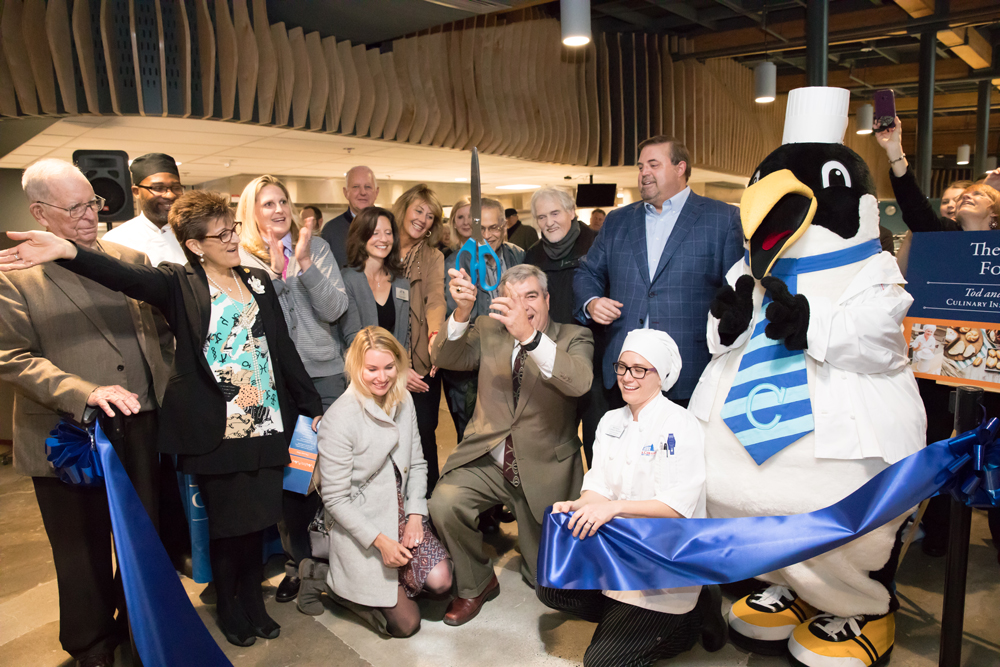
Clark College President Bob Knight cuts the ribbon at the opening of the McClaskey Culinary Institute. Student Leslie Krawchuk, front row in chef’s hat, said she was excited to begin studying in the new institute.
If there was one theme to the mood at the ribbon-cutting of the Tod and Maxine McClaskey Culinary Institute this November, it might have been best summed up in the opening remarks of Clark College President Bob Knight: “This has been a long time coming.”
Knight added, “Thirteen and a half years ago, when I came to the college, we were having these conversations back then.”
Indeed, there has long been an understanding at the college that its culinary program needed modernizing, both in terms of curriculum and its 40-year-old facilities. But doing so required making the tough decision to put the popular program on hiatus, redesigning the entire curriculum, hiring new faculty, raising funds for a new facility, designing it, and building it from the ground up. All told, the culinary program—now renamed cuisine management—had been on hiatus for five years, and the college had been without its primary food-service venue for just as long. Today, that long wait was finally over.
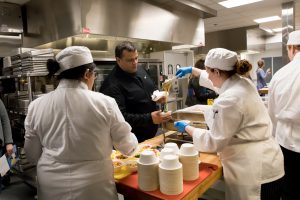
Guests try vegetarian yakisoba stir-fry during the ribbon-cutting of the McClaskey Culinary Institute.
By all accounts, the end result was well worth the wait. The new facility boasts outdoor seating and garage-door windows to let natural light into the comfortable interior; an espresso and bakery kiosk; a soup and salad bar; a grill for made-to-order meals; a kitchen kiosk for special demonstrations and events; and windows looking into the bakery’s workspace to give an “open kitchen” feel to the facility. Additionally, a full-service, sit-down restaurant run by second-year students will open next year.
And that’s just what can be seen from the dining area—the kitchen boasts state-of-the-art equipment for making everything from chocolate croissants to vegan stir fries. Students in both the cuisine management and the bakery and pastry arts programs are now learning their trades in a fully functioning, industrial-sized kitchen that mirrors what they might encounter in their professional careers.
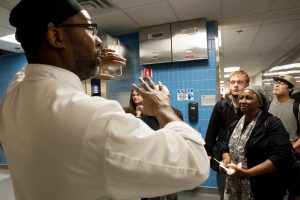
Clark College cuisine instructor Earl Frederick gives guests a tour of the McClaskey Culinary Institute’s kitchens.
According to local employers, those careers are waiting for them. “I can tell you this program is much needed in our area,” said Rick Takach, who donated funds toward the facility’s $10.5 million cost and served on the Culinary Campaign Advisory Committee. “Though it wasn’t my intention, there’s a return on my donation. That return is the qualified staff I will need for my businesses, including the new waterfront hotel I’m opening.”
“There is a huge demand,” added restaurateur Mark Matthias, who also contributed funds to the facility. “We need professionals coming out of this program ready to go, ready to start their careers.”
There is also a need for an affordable, high-quality program for local high school students who have begun studying culinary arts and want to continue their educations, said David Finnie, who teaches culinary arts at Fort Vancouver High School and helped advise the college on the facility’s design. He, too, felt the institute was worth the wait.
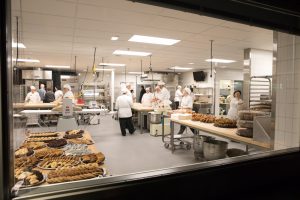
The new culinary institute has an “open kitchen” feel, with a window looking into the bakery program’s facilities.
“It’s amazing,” he said. “The facility—I got to tour it last week and my jaw hit the floor. We already have a student from our program in here, and she loves it.”
So does Leslie Krawchuk, who joined the college’s inaugural class of the new baking and pastry arts program. For Krawchuk, too, this moment was a long time coming. She had spent almost 15 years in health care management, but always harbored a dream of starting her own bakery. “When my husband and I moved here from Savannah, Georgia, I decided it was time to chase my dreams,” she said. “I researched quite a few schools, and Clark has it all. With the McClaskey Culinary Institute opening, and after speaking to Chef Alison [Dolder, head of the bakery and pastry arts program], I knew this was the right place.”
Krawchuk said she was attracted to Clark’s focus on hands-on learning. “The focus here is on production,” she said. “Other schools seemed more demonstration- or lecture-based. But with baking, you need to be able to touch and feel the dough.”
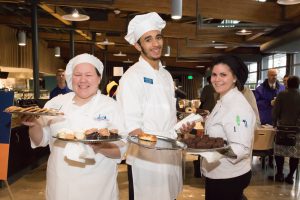
Students passed out tasty treats during the McClaskey Culinary Institute ribbon-cutting.
Krawchuk said she hopes to open her business in downtown Vancouver, and that she expects many Clark graduates to contribute to an expanded and enriched food culture in her new hometown. “I have some classmates who are doing this to start their own businesses, and others who have all kinds of interesting career paths in mind,” she said. “We’re all already talking about banding together, creating connections. I’m excited to see where we go next.”
View more photographs from the event on Flickr.
Photos: Jenny Shadley/Clark College

